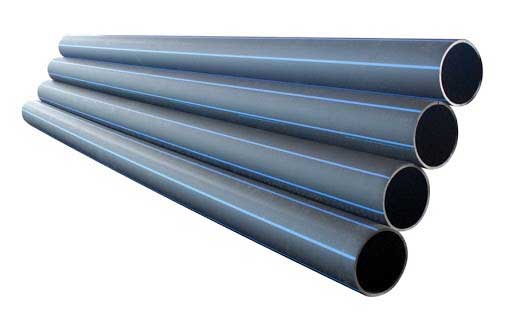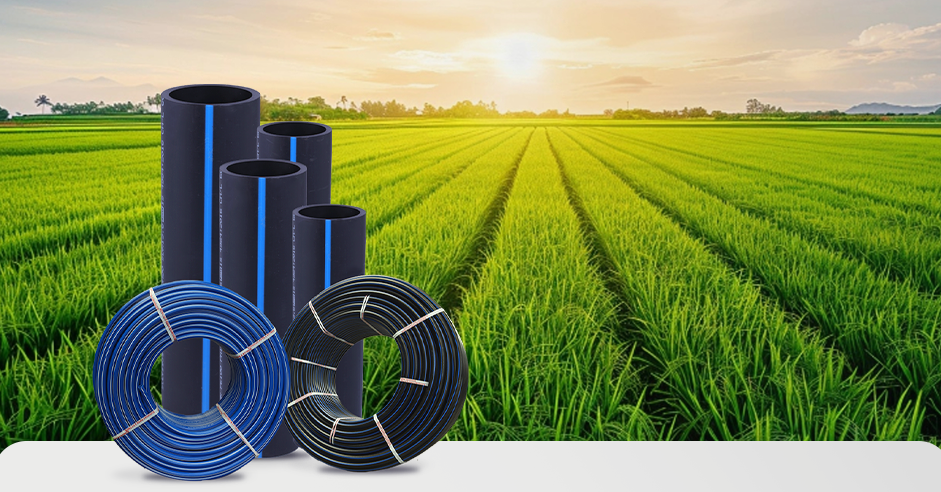The Complete Guide to Pipe Manufacturing Midland TX for Construction
Recognizing the Trick Perks of HDPE Pipe for Water and Wastewater Monitoring
Making use of HDPE pipe in water and wastewater management presents numerous benefits that warrant factor to consider. Its outstanding durability and lengthy life-span make it a preferred choice for lots of projects. In addition, the material's resistance to corrosion and chemical damages improves its reliability in different atmospheres. The benefits expand beyond just long life and resistance. Pipe Manufacturing Midland TX. Discovering its cost-effectiveness and environmental influence exposes even more engaging reasons for its extensive fostering in contemporary framework
Outstanding Durability and Long Life

HDPE pipeline stands apart for its phenomenal resilience and durability, making it a recommended choice in water management systems. Built from high-density polyethylene, these pipes can hold up against considerable stress and stress and anxiety, guaranteeing reputable efficiency with time. Their robust nature enables them to sustain severe ecological problems, consisting of temperature level fluctuations and soil movements, which can create various other products to fall short.
The lifespan of HDPE pipes frequently surpasses 50 years, offering an affordable service for communities and markets alike. Furthermore, the material's lightweight buildings streamline installation, minimizing labor expenses and timeframes. This resilience reduces the need for frequent repairs or substitutes, further enhancing its financial allure.
In water monitoring applications, the dependability of HDPE pipes implies fewer disturbances and boosted solution continuity, making them essential to sustainable framework growth. The combination of resilience and longevity strengthens HDPE's duty as a keystone in efficient water management solutions.

Resistance to Deterioration and Chemical Damage
While several products catch rust and chemical damage over time, HDPE pipelines show impressive resistance, making them excellent for numerous water administration applications. This resilience originates from the molecular framework of high-density polyethylene, which is inherently non-reactive and does not corrode like steels or break down from exposure to harsh chemicals. As an outcome, HDPE is extremely effective in settings with hostile substances, such as wastewater systems that might consist of acids, bases, and organic solvents.
Additionally, HDPE pipelines can stand up to environmental variables such as soil acidity and saline problems, even more boosting their suitability for diverse applications (hdpe pipe suppliers Midland TX). Their capacity to maintain architectural integrity gradually decreases the threat of leaks and failings, which is important in making sure the safety and dependability of water circulation and wastewater administration systems. Subsequently, the resistance to corrosion and chemical damages considerably adds to the overall performance and durability of HDPE piping remedies
Cost-Effectiveness and Financial Benefits
When taking into consideration the financial ramifications of water monitoring systems, the cost-effectiveness of HDPE pipelines becomes apparent. These pipelines supply lower installment and upkeep costs compared to standard products like steel or concrete. Their lightweight nature simplifies transportation and setup, leading to reduced labor expenses. Additionally, HDPE pipes display a lengthy life expectancy, often exceeding 50 years, which translates to fewer replacements and long-term savings.
In addition, the resistance of HDPE to corrosion and chemical damages decreases the need for expensive repair work and replacements. The pipes additionally sustain effective water flow, decreasing energy costs connected with pumping systems. By mitigating leakages and water loss, HDPE pipelines add to substantial economic benefits for communities and sectors alike. On the whole, the preliminary investment in HDPE piping can generate substantial financial returns over the lifespan of the water management system, making it a sensible option for sustainable infrastructure growth.
Ecological Sustainability and Minimized Influence

Convenience and Flexibility in Installation
Due to the fact that of their special properties, HDPE pipelines provide impressive convenience and adaptability in setup, making them suitable for a wide variety of applications. Their light-weight nature enables for easier handling and transport, decreasing labor prices and setup time. HDPE pipes can be bent and formed to fit different surfaces and job needs, which is especially beneficial in challenging settings.
Furthermore, their resistance to corrosion and chemical damages allows for setup in varied settings without the demand for specialized protective finishes. The ability to fuse joints produces a continual, leak-free system, enhancing the total integrity and integrity of the installment. HDPE's flexibility likewise fits ground activity, reducing the danger of damages in areas susceptible to changing dirt. Overall, these attributes make HDPE pipelines not just versatile but likewise a recommended choice for water and wastewater administration systems.
Often Asked Inquiries
Just How Does HDPE Pipe Compare to PVC in Water Management Applications?
HDPE pipe uses remarkable adaptability, resistance to corrosion, and toughness contrasted to PVC. Its lighter weight promotes easier installation, while its long lifespan decreases replacement expenses, making HDPE a favored option in water administration applications.
What Is the Life-span of HDPE Piping Under Regular Problems?
Under normal problems, HDPE pipelines can have a life expectancy varying from 50 to 100 years. Their toughness and resistance to rust add to their long-term performance in various applications, making them a reputable option for facilities.
Are HDPE Pipeline Recyclable After Their Life Span?
Yes, HDPE pipes are recyclable after their life span. American Plastics HDPE Pipe for Oilfield. They can be processed and repurposed into new items, considerably decreasing environmental influence and advertising sustainability within the market, making them an environment-friendly choice for piping solutions
What Is the Installment Refine for HDPE Pipeline?
The installation procedure for HDPE pipes involves website preparation, trenching, pipeline combination or mechanical joining, backfilling, and stress testing. Proper strategies ensure a durable and reliable system for carrying water and wastewater effectively.
Can HDPE Piping Be Utilized for Both Safe And Clean and Non-Potable Water Solutions?
Yes, HDPE pipelines can be utilized for both safe and clean and non-potable water systems. Their flexibility, durability, and resistance to rust make them suitable for different applications, making sure safe and effective transportation of water in different contexts.